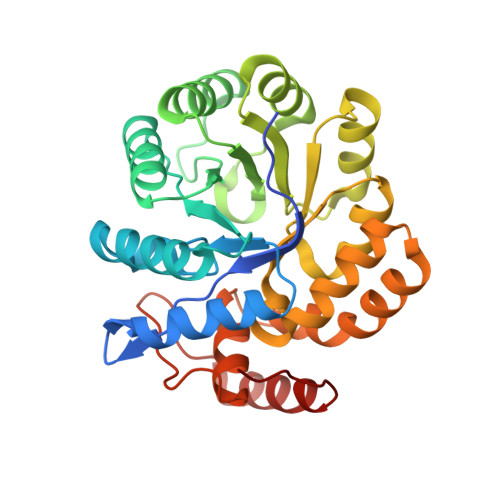Tyrosine 110 plays a critical role in regulating the allosteric inhibition of Campylobacter jejuni dihydrodipicolinate synthase by lysine.
Conly, C.J., Skovpen, Y.V., Li, S., Palmer, D.R., Sanders, D.A.(2014) Biochemistry 53: 7396-7406
- PubMed: 25369463
- DOI: https://doi.org/10.1021/bi5012157
- Primary Citation of Related Structures:
4LY8, 4M19, 4MLJ, 4MLR, 4R53 - PubMed Abstract:
Dihydrodipicolinate synthase (DHDPS), an enzyme found in most bacteria and plants, controls a critical step in the biosynthesis of l-lysine and meso-diaminopimelate, necessary components for bacterial cell wall biosynthesis. DHDPS catalyzes the condensation of pyruvate and (S)-aspartate-β-semialdehyde, forming an unstable product that is dehydrated to dihydrodipicolinate. The tetrameric enzyme is allosterically inhibited by l-lysine, and a better understanding of the allosteric inhibition mechanism is necessary for the design of potent antibacterial therapeutics. Here we describe the high-resolution crystal structures of DHDPS from Campylobacter jejuni with and without its inhibitor bound to the allosteric sites. These structures reveal a role for Y110 in the regulation of the allosteric inhibition by lysine. Mutation of Y110 to phenylalanine results in insensitivity to lysine inhibition, although the mutant crystal structure reveals that lysine does bind in the allosteric site. Comparison of the lysine-bound Y110F structure with wild-type structures reveals that key structural changes due to lysine binding are absent in this mutant.
Organizational Affiliation:
Department of Chemistry, University of Saskatchewan , 110 Science Place, Saskatoon, SK S7N 5C9, Canada.



















